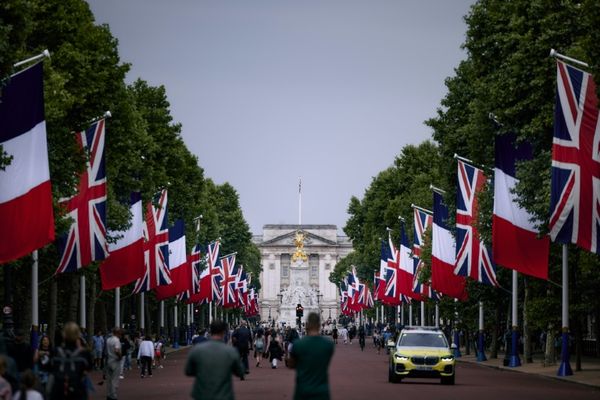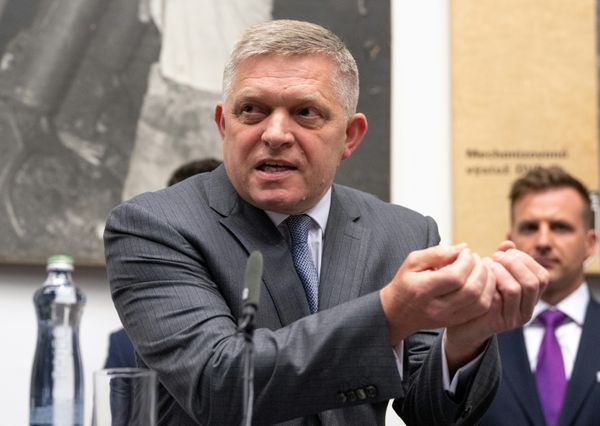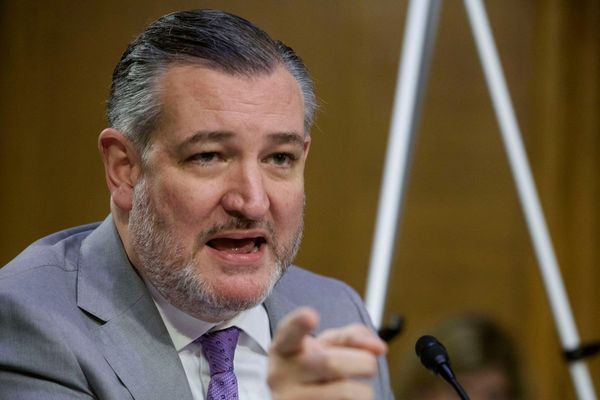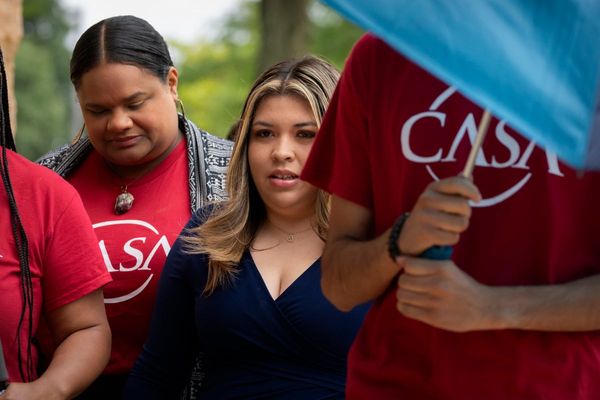
“This is a great place to relax,” a familiar, deep voice coos out from the screen. “Enjoy the calm feeling as you make patterns in the sand … that looks splendid!”
If anyone’s dulcet tones has the power to soothe the public (and a legion of housebound hyperactive three-year-olds), it’s Stephen Fry. Fry was recently announced as the calming narrator of CBeebies’ The Mindful Garden, a wellness cartoon app for young children, in which users can rake a Zen garden, plant a tree or breathe along with a frog to help them “de-stress and unwind” from the day.
Parents’ ears may prick up when they first recognise Fry’s voice, and he’s far from the only A-lister lending their skills to kids’ TV at the moment. Just like when the penny finally drops when tuning in to Bing the bunny (“Is that … Mark Rylance?”), adult viewers get a little extra appreciation for the shows home-schooling the nation’s children when they check out the credits.
Usually, I tend to “watch” children’s cartoons with my toddler at 6am, while slumped on the sofa. Also: resting my eyes. But, currently on lockdown – and with 12 straight hours of entertainment to provide for an under-five each day – much of the day is now devoted to TV animation studies, and it’s a regular game of who’s who, guessing the high-profile actors.
If it’s a golden age for television, it’s a platinum age for children’s cartoons. From Kathy Burke in School of Roars, Alexander Armstrong in Hey Duggee, Tamsin Greig in Love Monster, Michael Douglas and Diane Keaton in Green Eggs and Ham, and Lin-Manuel Miranda and David Tennant in the DuckTales reboot, Oscar- and Bafta-winners are lending their voices to children’s cartoons.
Take the Rylance-fronted Bing. Since its launch in 2014, it has become one of the BBC’s most popular children’s cartoons, winning multiple awards and with episodes clocking up more than two million views each on YouTube. Bing is a CGI toddler bunny, looked after by an odd knitted ant (possibly?) half his size called Flop. Every episode features a microdrama: Bing steals a lollipop! Bing breaks a toy drum! Bing goes full Lennie from Of Mice and Men and accidentally squashes a butterfly! It all rounds off with the unflappable Flop announcing: “It’s a Bing thing.” The kids go absolutely mad for it.
Despite its huge fanbase, it’s the cause of much consternation – and theories – for Mumsnetters, namely, what on earth is Flop, played by Rylance for three series, then taken over by Shameless’s David Threlfall in series four? The producer of Bing, Mikael Shields, tells me: “Flop is Flop.”
“He’s obviously a competent grownup, in looking after Bing, and he’s also very joyfully engaged with that. Beyond that, we haven’t really defined him much. He just loves Bing, and Bing loves him. There’s a certain mystery to that, which is probably a good thing.”
Shields says it was his love of the theatre that led him to cast the Tony and Olivier award-winning Rylance as Flop: “I saw Mark play Henry V decades ago, then I saw his amazing performance in the Jez Butterworth play Jerusalem, so I wrote to him and we met up, and he kindly agreed to work with us. I think he saw we were sincere about telling stories and creating characters that were really thoughtfully made for the audience.
“He was instrumental in creating who Flop is. We wanted the voice not to be like a dad or a grandfather, but fall somewhere in between that, and we had to think about his cadence, his gentleness, the amount of breath in his voice.”
Bing also has a supporting cast worthy of the National Theatre. Father Ted’s Pauline McLynn plays Gilly, Bryony Hannah from Call the Midwife voices Padget, while established theatre actor Akiya Henry (last seen as Lady Macbeth in the 2018 film Macbeth) plays Amma – not that the producers shout about it: “We’ve never promoted any of the characters or who they are in the show,” says Shields. “We have a range of really talented actors across the board, but they’re cast because of their fantastic voices and because of the connection we think they’ll make with the children in the audience.
“Children are very emotionally porous – in some sense, they’re almost a more discerning audience than adults. If they’re not interested, they’ll walk off or even turn the television off. Show me a 50-year-old, sitting on the sofa who’ll do that. Children are elite consumers of a story because they’re developing language, cognition, emotional intelligence, social skills and identity,” he adds. “So high-quality writing is vital and so are voice performances that need to be highly authentic and expressive. We put our heart and soul into making it like this, which is why I think we’ve got such a loyal audience.”
The other big hitter for children’s cartoons is Hey Duggee, a joyous 8-bit-inspired cartoon about a gang of young animals in a scout-like group called The Squirrels. They’re presided over by a giant, knowledgable dog called Duggee, who communicates through just one word (“Woof!”) which themed badge they’re aiming to complete each day. It all ends in a big, group hug for the characters. “Ah, woof!” as Duggee puts it.
There are little jokes and cultural references embedded in each episode for the parents. The Stick song – a ravey beat that seems to be heavily inspired by ATB’s banger, 9pm (Til I Come) – sung by a stick insect was mooted to become Christmas No 1 in 2017 and ended up being discussed on Newsnight. Last Christmas, Hey Duggee was the third most watched series on BBC iPlayer, coming in behind EastEnders and Gavin & Stacey.
The narrator for the comedy cartoon is Alexander Armstrong, somebody who Grant Orchard, creator of Hey Duggee, had earmarked for the role right from the beginning. “I quite specifically wanted Alexander Armstrong. There was a voice he did, the drunken detective in Armstrong & Miller, who had an imaginary friend called Chuffy the train driver. It was a great voice, all encompassing. I decided I wanted an avuncular narrator for the show and his was the only voice I wanted.”
Making the switch from prime-time to breakfast time took a bit of persuading. “Initially he [Armstrong] was quite reluctant to take part,” Orchard says. “But we said ‘We really don’t want you to be soft, we want you to be almost military’ – we referenced Lionel Jeffries from Chitty Chitty Bang Bang and that I think really hooked him.”
Orchard says that the plan from the start was that the cartoon would be a shared experience. “We didn’t want the parents to sit the kids in front of the TV then walk off, we wanted them to be engaged with it as well,” he tells me. “We wanted the kids to watch their parents laughing. When I was younger, that only happened when it came to something like The Generation Game on Saturday nights, the whole family would watch and laugh, but other than that, it’s kind of segregated. Hopefully, it’s going to be part of a family’s shared nostalgia.”
As I load up another Hey Duggee episode for my son (no judgments, please), it’s hard to think how we’ll look back on this strange time with nostalgia. But by watching these engaging cartoons voiced by some of the acting world’s finest, it’s making us both laugh. These actors – Fry, in particular – may just be providing their greatest performance yet: a lifeline for every parent’s last nerve.







